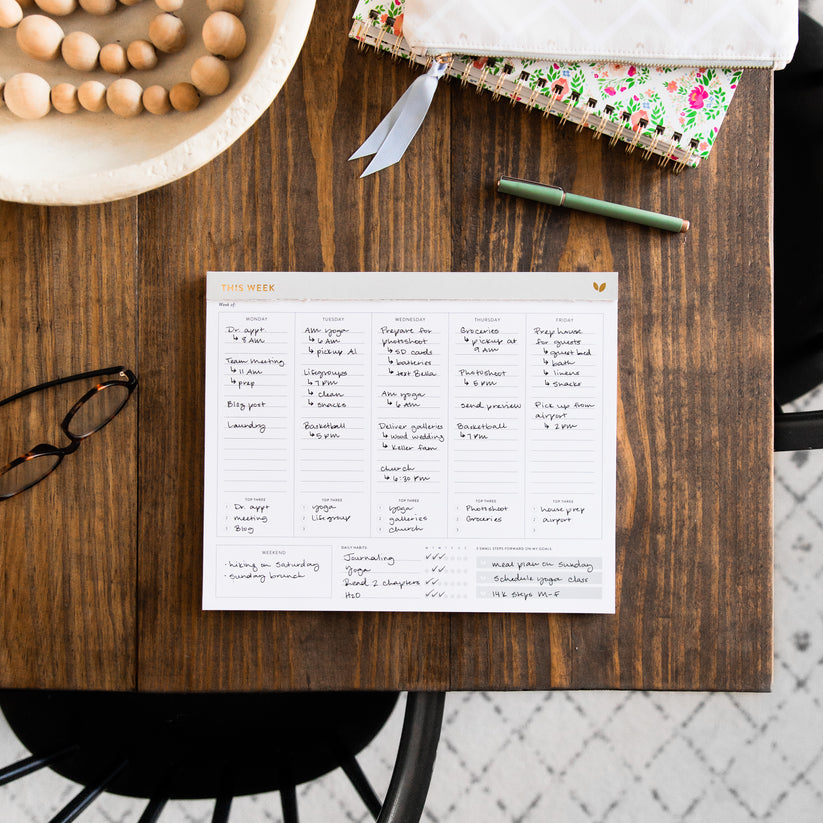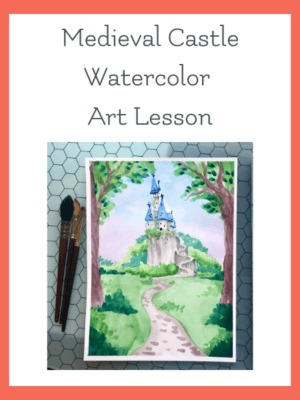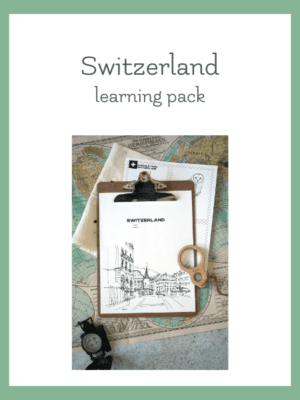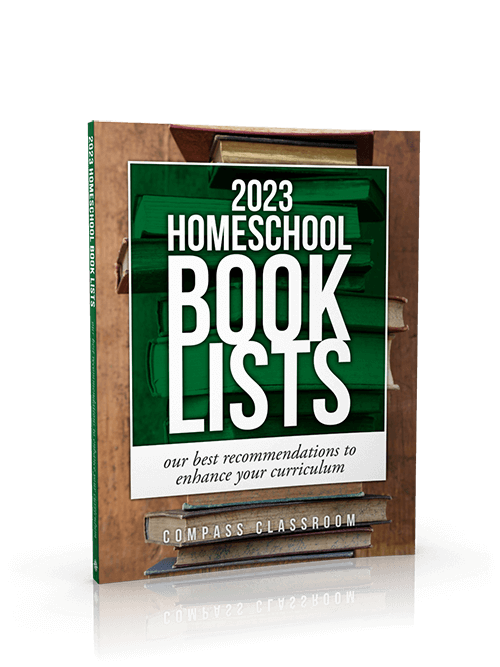
Homeschooling High School Students
If you are a Charlotte Mason homeschooler, or an unschooler, or interest-led, or you like unit studies, or you practice an eclectic mish-mash of all of these (and more!), you might be looking ahead to the high school years with trepidation. You might be thinking you’ll need to change everything, because high school COUNTS, hello, and there are certain things your kids must learn to graduate. And you will need to give them grades for their work, and credits, and it all seems a bit overwhelming.
And depressing, because this lovely homeschool lifestyle you’ve built will have to be sacrificed to the “getting them ready for college” gods.
I’m guest-posting here on Lara’s beautiful blog to reassure you that you can truly homeschool high school while still enjoying the style(s) of homeschooling you’ve come to love in the elementary and middle years.
All you need is a little information about some of the things you might be worried about. Sometimes ignorance is bliss, but in this case, ignorance is NOT a good idea, lol. Let me enlighten you so that you can be reassured and hopefully even inspired to try this homeschool high school thing for yourself!
I’ve graduated four of my kids from our homeschool (one to go!), and you can trust me when I tell you that it is a very doable and worthwhile endeavor and that you can do it YOUR way.
Reassuring Information You Need to Know about Homeschooling High School
1) Graduation Requirements — Guess what? Most states do NOT have graduation requirements for homeschoolers. Some do, but most do not. So that means your teen can study whatever you want them to, or whatever THEY want to.
If they are headed to college, you will definitely want to check college requirements and aim to meet them. But college requirements don’t tell you HOW your kid needs to learn, just WHAT your kid needs to learn. And they only give very broad subject requirements, like “American History” or “a lab science.” Within those topics, it’s all fair game! Let your teen spend mondo time in World War 2, if that is their interest, and count it all as “American History.” You do have that kind of decision-making power!
And colleges don’t actually specify your kid’s entire high school career. There is plenty of room for your teen to work on whatever interests them. My eldest daughter wanted to major in violin performance — so I was able to count her three-hours-per-day practice schedule for 2-3 credits per year during high school. Interest-led? Totally!
2) Grades — yes, these are a thing, because you will need to make a transcript to include on college applications. But how you give them is up to you. Tests aren’t the only way to evaluate learning, as you probably well know. Your evaluation practices don’t have to change just because your teen is now doing high-school-level work.
True, the grades you give your teen may be more subjective than they might receive at the public school or using a boxed curriculum — but frankly, they might not. I can remember one teacher when I was in school who gave the girl who sat next to me one point higher on her SEMESTER grade just because she operated the filmstrip projector ONE time in class. Not so objective, huh? Nor indicative of learning. Sigh. (I wouldn’t remember it to this day, except that the one extra point moved her from a B to an A, while I was stuck with my 89 and had to live with it. Sheesh.)
3) Credits — another thing that does exist. And colleges usually like to see a certain number in some given subjects — for example, most colleges like an applicant to have completed 3 credits of high school math.
What is helpful to know is that high school credits are determined mainly by two things:
a) The amount of time spent in the study of a particular subject. NOT the actual information studied. I mean, yes, there is the basic idea that what is studied should be high-school-level material, as in Algebra 1 vs. the multiplication tables — but even that is flexible depending on the child.
If your child spends 80+ hours on a particular core subject, whether that be reading, watching documentaries, discussing, writing, problem-solving, computer modeling, etc etc etc — then they earn 1/2 credit. If they spend 160+ hours, they get 1 credit.
b) Finishing a “boxed” curriculum that is either designed to be a certain number of credits or is generally considered to encompass a certain number of credits will then earn those credits, no matter how long it takes. Algebra 1 is a good example of the latter: finishing an Algebra 1 curriculum means earning one credit, whether that takes 3 months or 2 years.
But if you don’t want to use a boxed curriculum, and you are willing to keep track of your student’s hours somehow (or have THEM keep track, hello), then you can be confident that their credits are well-earned and not disputable.
4) Succeeding at college — you might be afraid your kid won’t be ready for college workloads if you don’t start them studying textbooks during high school. Well, in my experience, the biggest determining factor of college success is not the type of curriculum but whether or not they know how to learn independently. If they can read and understand, process, and work with the information they’ve encountered — no matter how — then they will be fine in college. That is something that is basically built into Charlotte Mason and interest-led learning, am I right? So no worries there.
I will just say that using a textbook for certain courses will not mean that you are selling out. For subjects such as math and science, a textbook might be the most efficient way for your child to learn the topic they are interested in.
Or they might not be interested in it, lol — but to reach their goals, there may be some preliminary prerequisite material that MUST be mastered. High school is a great time to learn that not all in life is based on what we want, that sometimes “have to” does become reality. And maybe that means slogging through a textbook if it means working towards a desirable end result.
Hopefully, you are feeling a bit better now, reassured that you can truly homeschool high school the way you would prefer. Your high-schooler can still participate in unit studies with the rest of the family. They can still read living books — and should! They can follow their interests, varied or few, as they grow through the high school years. The exploration of truth, goodness, and beauty can still be a main focus. The possibilities are truly endless.
You truly can design a high school plan that encompasses all of this and whatever else you want to include!
“Ok,” you say. “That’s all well and good but HOW do I do this? How do I know what colleges want? How do I know how much work is the right amount? How do I know when my kid is ready to graduate?”
It’s true I’ve only given you a very basic overview here. It is beyond the scope of one blog post to answer all your specific questions, lol.
BUT I HAVE A RESOURCE FOR YOU. I have written an ebook that will take you from square one of not knowing anything about homeschooling high school, step-by-step all the way through doing the necessary research, deciding what your goals are for your teen during high school, and creating a general map for how their four (or five) years of high school will look. It comes with eight printable forms for you to fill out every step of the way.
When you’re done working through my ebook, you will be CONFIDENT that you know what you’re doing and also what your kid should be doing to meet their goals. It answers all those questions above and more that you didn’t even think to ask yet!
Here’s where to see more information about my ebook: Cure the Fear of Homeschooling High School: How to Be Sure You’re Not Missing Anything. Check it out!
I sincerely have a heart for encouraging families to homeschool all the way through graduation. The high school years have been the BEST years of our homeschool journey. And they can be for you, too, especially since you can do them just the way you want to!
About Ann

Ann is the (very) middle-aged mom of five who writes at Annie & Everything about calming the chaos of homeschool life. She says, “I don’t do complicated!” and is known for her down-to-earth common sense about all things homeschool and the homeschool lifestyle. Having graduated four children (with one more to go), she has a heart for helping families choose to homeschool all the way through high school. To that end, she has written the ebook Cure the Fear of Homeschooling High School: How to Be Sure You’re Not Missing Anything, and she admins the popular FB group called It’s Not that Hard to Homeschool High School to give encouragement and support to moms of homeschooled teens. She and her family, including two dogs and three cats, live in rural Missouri.
Find all our Homeschool 101 posts here:

Middle Grades and High School Giveaway
Are you homeschooling a middle or high schooler this year? Some people shy away from the upper grades, but they can be so much fun if you let them! So many options and different avenues of study to pursue. If you’re feeling overwhelmed, a little lost, or just plain confused on where to start and how to make the most of these years, then this giveaway is for you!
Check out this AMAZING Prize package from our sponsors!
 |
Seasonal Themed Poetry Copywork packs from In All You Do – These are perfect for Middle & High Schoolers needing a simple introduction into the world of poetry. Each pack includes 18 different seasonal poems with plain lines for print and cursive copywork, for a total of 484 pages. |
 |
All About Plants: Botany for Teens and Adults from Julie Naturally – Botany is arguably the most important science to learn and yet it is the least taught. Spend a semester doing an immersive, project-based, rigorous study of plants with this robust course. Match it with your favorite Anatomy and Physiology course for a Biology alternative credit. Taught by a trained master herbalist and NAHA Level 1 Aromatherapist. |
 |
Music Appreciation of the Romantic Era for High School from Music in Our Homeschool – The “Music Appreciation of the Romantic Era” online course consists of 36 lessons about the music, genres, styles, and composers of Western Music from about 1800-1900. You’ll learn about Schubert, Liszt, Mendelssohn, Chopin, Rossini, Wagner, Brahms, Tchaikovsky, Dvorak, Stephen Foster, Gilbert & Sullivan, Edward MacDowell, Amy Beach and many more! |
 |
Grammar Workbook Set from Brookdale House – This Grammar Workbook set includes a middle school grammar and composition workbook for students that are ready for an introduction to more advanced grammar. Also included is an Answer Key. Suitable for students in grades 6 through 9. |
 |
Nature Poetry Unit Study Packet from Geez, Gwen! – This Poetry Unit Study walks students through a discovery of poetry all about nature. Learners will read moving poetry by famous poets and write beautiful poetry of their own. They will be introduced to multiple forms of poetry, vocabulary, figures of speech, and other useful tools to help them deliver work they can feel good about. Multiple worksheets and activities are included as well as quote cards perfect for displaying throughout their space. |
 |
Gospel of John Inductive Bible Study Class from Homeschool with Moxie – Are your teens ready to move deeper into studying the Bible? Your students in grades 7-12 can move past just simply memorizing Bible stories and facts to learning how to study Scripture in context. In this online Bible class through chapters 1-12 in the Gospel of John, your teens will learn how to use the inductive method to systematically observe, interpret, and apply the text. |
 |
Morning Time Teens™: A Year With Lewis & Tolkien from I Choose Joy – These are the morning time plans you’ve been looking for to guide and connect with your middle and high schoolers! Read all the Chronicles of Narnia, The Hobbit, and the Lord of the Rings. It includes the schedule, discussion questions, and other activities to do alongside your read-aloud time. |
 |
Creative Writing Journal from Create Your Homeschool – This creative writing journal is the perfect way to get your middle schoolers writing everyday in a fun and engaging way! With over 36 weeks worth of prompts, this journal is perfect for middle school morning time as well! |
More about our 2022 Upper Grades Homeschool Giveaway Sponsors
This giveaway wouldn’t be possible without our amazing sponsors! We encourage you to visit their site and take a look around at all their wonderful products perfect for homeschoolers!
Thanks to these amazing bloggers and brands that love supporting the homeschool community, we’re giving away more than $380 in Upper Grades prizes!
 |
 |
|
 |
 |
 |
 |
 |
 |
Want to enter to win? Simply enter by following as many sponsors and partners on the form below, and you’re in it to win it!
You are responsible for reading the Terms and Conditions before entering. Entering this giveaway confirms that you have read and understand the terms.
a Rafflecopter giveaway








Leave a Reply